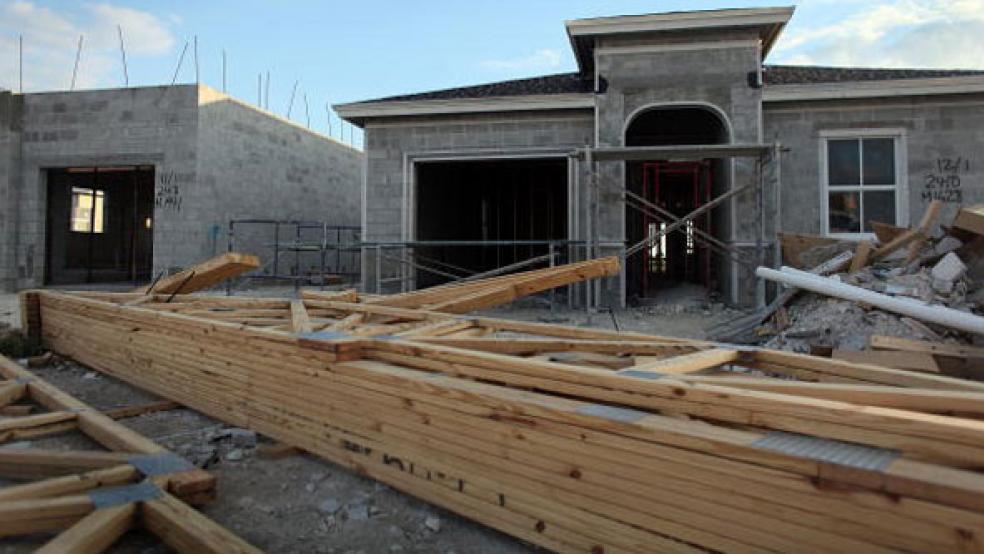The good news for the economy is that more houses are being built, with the Census Bureau reporting a 2.3 percent increase in housing starts in August over the same period the previous year. The bad news is, so far at least, that surge in construction hasn’t translated into an increase in construction jobs.

In fact, the number of construction workers employed per housing start has declined since last year. According to the Bureau of Labor Statistics, 20 million residential construction workers were employed in 2012, compared to 19.4 million in 2011. However, the number of workers hired per start has decreased since last year, with an estimated 4 workers employed for every housing start, down from 4.3 workers last year. The biggest difference, reported in August, showed an estimated 4.4 workers per start compared to 5.7 workers per start in August 2011.
What accounts for this change?
Experts say that while more houses are being built, contractors are reluctant to bring on larger crews and for now are trying to do more with less. “The recent increases in starts have not been significant enough to generate a meaningful increase in construction employment yet,” said Daniel Silver, economist at JP Morgan.
Ken Simonson, chief economist at The Association of General Contractors of America, said the types of residential housing starts that increased in August could also explain why so few additional construction workers are being hired. “Right now there is more activity in multi-family construction, which uses fewer employees than single family construction,” Simonson told The Fiscal Times.
BLS data shows 26,100 fewer single-family contractors hired this year, compared to 2011. However, there was a 5,600 increase in multi-family contractors hired in 2012 compared to last year.
David Crowe, chief economist for the National Association of Home Builders, said construction jobs would increase when carpenters, painters, paper hangers, tile workers and other “finishing” jobs are needed for residential projects.
“Since there is a significant increase in housing starts, most of the workers aren’t on the job yet,” Crowe said. “Increases in employment will lag increases in starts.”
Crowe also noted that housing construction has a ripple effect in the job market that goes well beyond the creation of new construction jobs. “For every 100 houses created there are 300 jobs created,” Crowe said. “Just half of these jobs are construction workers, the other half are people who build appliances and everything else that goes into the house. They wouldn’t have a job if there wasn’t a house being built.”





